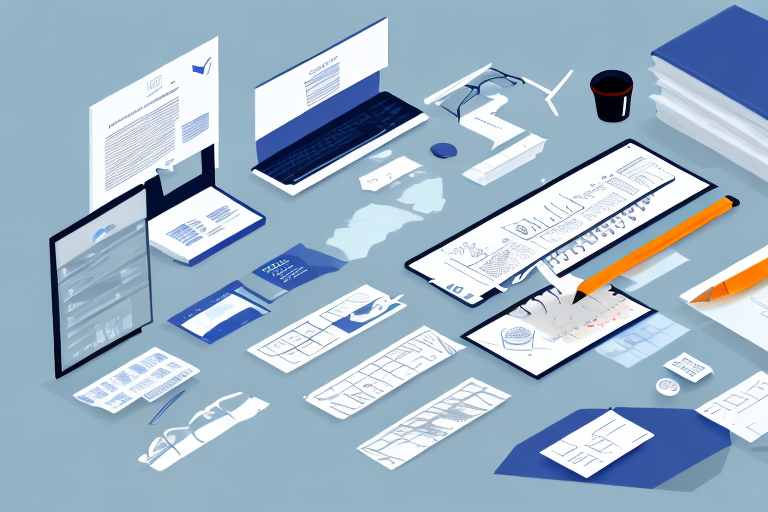In the world of international trade, the term “customs broker” is a crucial one that every importer should be familiar with. Understanding the role and importance of a customs broker can greatly streamline and facilitate your import operations. In this article, we will delve into the intricacies of customs brokerage, exploring its definition, functions, selection process, responsibilities, benefits, challenges, and the role technology plays in transforming this field. Additionally, we will touch upon essential documents, effective communication, regulatory compliance, fees and charges, case studies, emerging trends, licensing requirements, and the pros and cons of outsourcing versus in-house customs brokerage services. By the end of this comprehensive guide, you will have a clear understanding of customs brokerage and its impact on the import industry. So, let’s dive straight into it!
What is a Customs Broker and Why Do You Need One?
A customs broker acts as an intermediary between importers and governmental authorities, managing the complex process of clearing goods through customs. They possess in-depth knowledge of customs regulations, trade laws, and documentation requirements, effectively navigating these intricacies to ensure a seamless importing experience. Customs brokers play a vital role in simplifying customs clearance procedures, minimizing delays, and optimizing compliance with various regulations, ultimately saving importers valuable time and resources. By leveraging their expertise, you can focus on your core business activities, while leaving the intricacies of customs clearance to the professionals.
Importers need customs brokers to facilitate the efficient entry of goods into their respective destination countries. With ever-evolving regulations and compliance requirements, attempting to navigate the customs clearance process alone can be daunting and time-consuming. Customs brokers possess the necessary knowledge and experience to handle complex documentation, communicate with relevant authorities, and ensure a streamlined importation process. By collaborating with a customs broker, importers can minimize the risk of penalties, delays, and errors while maximizing cost-effectiveness and compliance.
Furthermore, customs brokers provide valuable guidance and support throughout the entire importation process. They can assist importers in determining the correct classification and valuation of goods, ensuring accurate duty and tax calculations. Customs brokers also help importers understand and comply with any special requirements or restrictions imposed by the destination country, such as permits, licenses, or certifications. Their expertise in navigating the complexities of international trade can help importers avoid costly mistakes and ensure smooth customs clearance.
The Role of a Customs Broker in Importing Goods
When it comes to importing goods, customs brokers play a multifaceted role in ensuring the smooth flow of products across international borders. Their responsibilities encompass a wide array of tasks, including but not limited to:
- Classification of Goods: Customs brokers are experts in classifying imported goods according to the Harmonized System (HS) code. This classification is crucial for accurately determining duties, taxes, and regulatory requirements applicable to the imported goods.
- Documentation and Record-keeping: One of the primary tasks of a customs broker is preparing and submitting accurate and compliant documentation required for customs clearance, such as commercial invoices, packing lists, bills of lading, and import permits. Additionally, they ensure proper record-keeping to comply with government regulations and facilitate future audits.
- Tariff Determination: Customs brokers assist importers in determining the correct tariff rates and applicable taxes on their imported goods, ensuring compliance with international trade agreements and local regulations. This expertise plays a vital role in accurately calculating the final cost of imported goods.
- Customs Clearance: Brokers liaise with customs authorities, acting as the point of contact for importers throughout the clearance process. They submit all required documentation, facilitate inspections if necessary, and ensure compliance with customs regulations. By leveraging their relationships and experience, customs brokers expedite the clearance process and minimize the risk of delays.
- Compliance and Risk Assessment: Customs brokers assess the compliance of importers’ activities with various laws and regulations, including import restrictions, trade sanctions, and product safety standards. By proactively identifying potential compliance issues, they help importers mitigate risks and avoid costly penalties.
- Trade Consultation: Customs brokers provide valuable insights and advice to importers regarding trade agreements, preferential tariff rates, documentation requirements, and other relevant aspects of international trade. By staying up-to-date with the latest trade developments, customs brokers help importers make informed decisions to optimize their import operations.
By fulfilling these critical functions, customs brokers serve as trusted partners, streamlining the customs clearance process and ensuring importers remain compliant with regulations.
Efficient Supply Chain Management: Customs brokers play a crucial role in ensuring efficient supply chain management for importers. They work closely with various stakeholders, including shipping companies, freight forwarders, and warehouse operators, to coordinate the movement of goods from the port of entry to the final destination. By effectively managing logistics and coordinating with different parties involved, customs brokers help importers minimize transit times and reduce costs.
Continuous Professional Development: Customs brokers are required to stay updated with the ever-changing regulations and trade policies. They undergo continuous professional development to enhance their knowledge and skills in areas such as customs law, international trade agreements, and emerging technologies. By staying abreast of the latest developments, customs brokers can provide accurate and up-to-date advice to importers, ensuring compliance and optimizing import operations.


